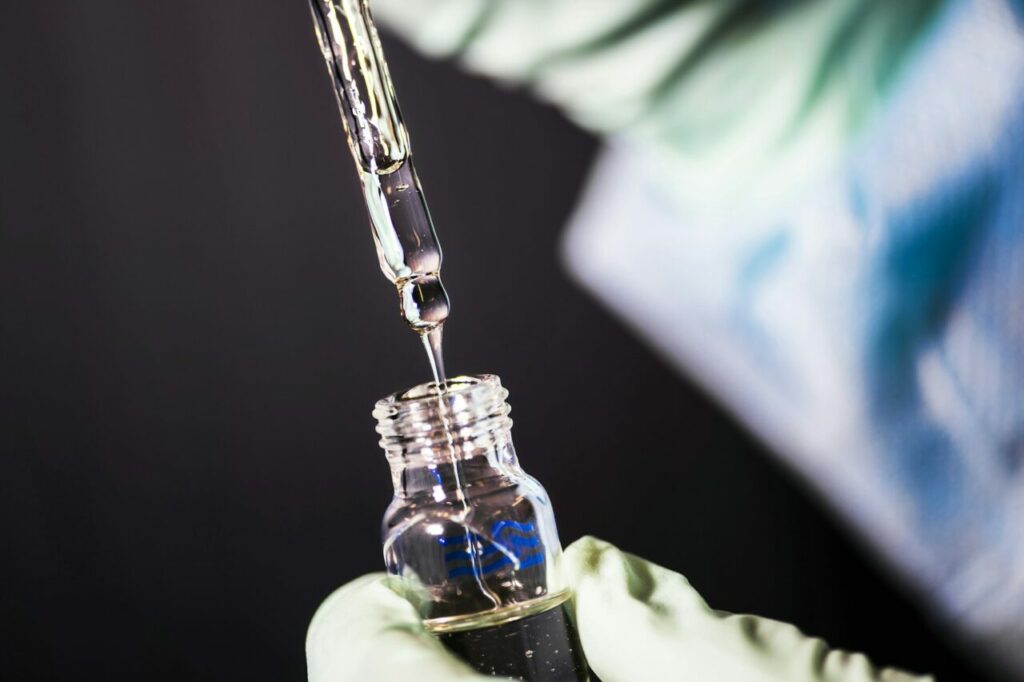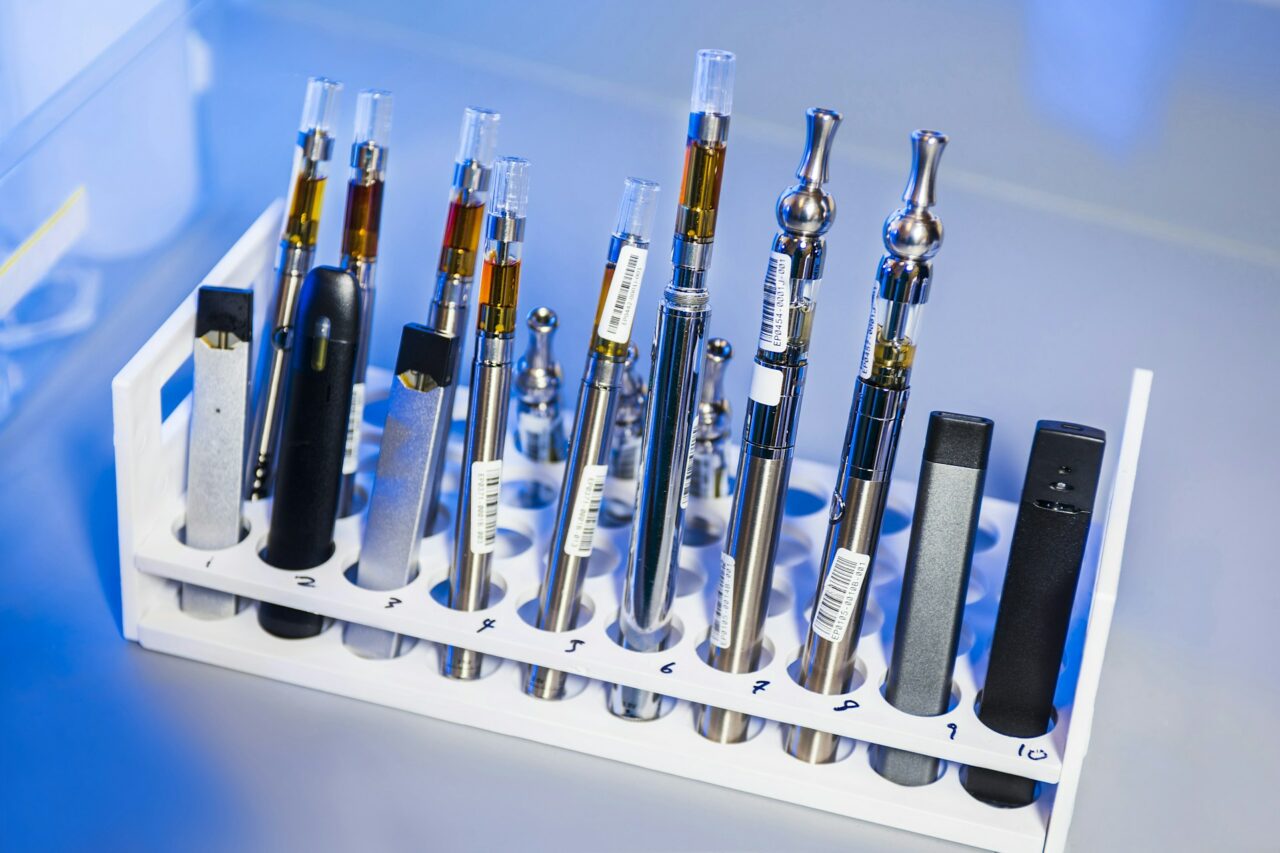The Drug Enforcement Administration (DEA) is increasing production quotas for modern products such as the DMT vape pen, marijuana, and other psychedelics. Spearheaded by Canada, we are entering an exciting new epoch of understanding.
The recent announcement of increased production for certain substances opens the door for unprecedented research opportunities.
Key Aspects:
- The DEA intends to raise production quotas to 20,000 grams of psilocybin and 11,000 grams of dimethyltryptamine by 2024.
- The spirit molecule disrupts repetitive thoughts and enhances brain and cognitive performance.
- Suggesting an increase in these substances could advance medical science and present low-cost alternative treatment options.
DEA’s 2024 Agenda: A Voyage into the Future of Psychedelics
In a bold move to boost research capabilities, the DEA recently proposed an increase in the production of certain regulated substances for scientific investigation in 2024. This reflects the growing recognition of the need for higher quantities to meet medical and research demands.
Specifics of the Proposal
The revised proposal significantly ups production quotas, indicating an increasing commitment to clinical trials. For instance, the target for certain substances has nearly doubled, setting the production limit at 20,000 grams for psilocybin and 11,000 grams for DMT vape cartridges.
These changes are a direct response to feedback from licensed manufacturers, who highlighted the need for larger amounts to support ongoing and future research. The production goals for related compounds have been maintained at previous high levels to ensure a steady supply for therapeutic studies.
Potential Benefits for Scientific Research and Therapeutic Uses
The increased availability of these substances could forge new paths for scientific endeavors, particularly in determining their therapeutic potential. As more research emerges, scientists might unveil revolutionary treatments for various conditions, including mental health disorders.
This intensified focus not only has the potential to expand our knowledge but also aligns with the growing public interest in alternative treatments. These changes could propel medical science forward and offer more cost-effective therapeutic alternatives than traditional methods. treatments.
Pioneering the Unknown: Present and Future Research on Dimethylamine and Psychedelics in Canada
Canada is increasingly focusing on the exploration of alternative therapies, with recent developments hinting at a potential transformative change in mental health treatment.
In 2021, substances known for their psychological benefits experienced a spike in interest, despite a subsequent market slowdown. However, ongoing clinical trials continue to produce encouraging results.

Current Status
On December 5th, 2022, Health Canada issued a Notice to Stakeholders outlining the required risk-management measures for clinical trials involving psychedelic-assisted psychotherapy. In Canada, different provinces have distinct approaches towards regulating the study and use of psychedelics:
| Ontario | The first Canadian federal grant for psilocybin research was awarded to the Centre for Addiction and Mental Health (“CAMH”). |
| Alberta | Approval has been given for the therapeutic use of specific psychedelics, including psilocybin, psilocin, ketamine, LSD, MMDA, and DMT. |
| University of Guelph | Health Canada granted permission to cultivate psilocybin-containing mushrooms |
| Saskatchewan | The Linden Medical Centre offers support for individuals suffering from PTSD to access psychedelics |
| New Brunswick | Home to a network of private clinics offering PTSD treatment with ketamine |
| British Columbia | Has decriminalized personal possession of specific substances |
| Quebec | Mindspace by Numinus is authorized to administer psilocybin and MDMA for the treatment of treatment-resistant depression and PTSD. |
Promising Research Fields
There are many promising areas of research, especially in relation to the therapeutic applications of dimethyltryptamine and psilocybin. With the growing body of evidence supporting their efficacy, future research may delve into:
In her experience, every encounter with the DMT vape pen cartridges presents a unique and distinct journey. She shares, “The first puff immerses my body into a deep state of relaxation, and colors burst with an extraordinary vibrancy,” she recalls. “I feel a sense of weightlessness, as if floating in water, but securely anchored by an invisible force.“
Entrepreneur Tim Leonard narrates an intensely profound experience: “My soul appeared to leave my body and enter a realm that can best be described as divine.” He saw “a semi-transparent human skull with a pulsating brain emitting colours and energy,” conveying a deep message about the marvel of human existence.
The Rise of Vapour Pens: A Guide for Conscious Consumers
The booming popularity of high-grade DMT vape pens and carts has transformed the way people engage with this substance. These portable devices offer a discreet and convenient mode for enjoying its benefits. As the user base expands, so does the need for responsible usage and awareness of ongoing research.
- Educate Yourself: Stay updated with trusted sources about research and regulations. Keep abreast of clinical trials and their outcomes, as they could provide crucial insights into safety and efficacy.
- Know Your Product: Purchase from reputable sellers who provide clear labels and quality assurances. Understanding what’s in your product can contribute to a safer experience.
- Practice Moderation: Start with lower doses to assess your response. Conscious usage can lead to more enjoyable experiences.
- Join the Community: Engage in discussions with other users and medical professionals. Sharing experiences and insights fosters a supportive environment and encourages responsible use.
Progressing Ahead: How Canada’s Online Dispensary is Preparing for Psychedelic Waves – Where to Purchase Vape Pens
As research deepens our
Magic Mushrooms Winnipeg Canada offers informed choices for everyone’s unique journey, acting as your trustworthy online dispensary for high-quality psilocybin products. We make the intriguing world of psychedelics more readily available than ever before.
The DEA’s recent actions have sparked interest in psychedelic research, leading consumers to eagerly expect a host of fascinating possibilities in the near future.
Frequently Asked Questions
Can the public access the substances that the DEA has requested?
No. These substances are under investigation by scientists for their potential benefits. To acquire a DMT vape cart or any of the mentioned substances, you can either visit a clinic offering them as part of their treatment options or purchase them from an online dispensary.
What makes dimethyltryptamine unique among other psychedelic substances?
Dimethyltryptamine stands out from other psychedelic substances due to its powerful effects and brief duration. Unlike LSD, which can affect neural activity for several hours, dimethyltryptamine creates a short but deeply immersive alteration in consciousness, marked by vivid visual patterns and a range of other sensations.
What conditions are currently improving with the use of dimethyltryptamine?
Various studies suggest that this compound can produce immediate antidepressant effects in patients the day following treatment. Other research has investigated its impact on the mental health outcomes among healthy participants. The primary emphasis is on reducing symptoms of depression and anxiety.





